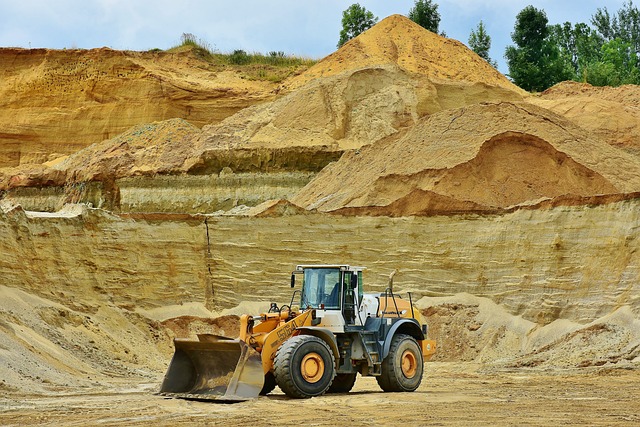Dr. Arslan Chikhaoui – Chairman of NSV Studies and Consultancy Center, Member of the Expert Advisory Council of the World Economic Forum and the “Track 2” Task Force of the United Nations System (UNCSR-1540), and NESA Center for Strategic Studies Alumni.
Since the Russo-Ukrainian political-military crisis, the Mediterranean and its strategic extension that is Africa have proven to be the scene of political-diplomatic maneuvers. The whole thus constitutes the first of the geopolitical theaters and consequently, the issues are at three levels: strategic, economic and ecological.
In this new era of reshaping geopolitical alliances, Africa is emerging as a production region of strategic minerals, which is likely to intensify competition between global players. The African continent is home to many rare earth deposits. North Africa and sub-Saharan Africa have become courted, in particular, for its their critical mineral resources key for the energy transition and have become the playgrounds of influence.

Rare earth minerals (17 elements of Mendeleev periodic table) are the inputs of 21st century industrial society and are vital for key products ranging from high-tech products (smart phones and monitors) to energy conversion systems (wind turbines, photovoltaic panels and electrical machines) and even military (lasers and radar).
Undoubtedly, the energy transition in the industrialized world is facing a generational shift in the governing elites of the countries holding key mineral resources. All the dynamics and stakes of the geopolitics of rare earths play out at this level. The new global dynamics have accelerated the energy transition and placed, for the first time, the metallurgical and mining industry in the geopolitical spotlight, giving it very special attention that was generally given to the oil and gas sector. This is particularly the case for the extraction and processing of metals necessary for the production and transmission of clean energy technologies, such as copper, aluminum, zinc, cobalt, lithium, nickel, strontium, etc. All of this is happening in a context of limited supply (new mines take around a decade to develop) and with processing facilities generally concentrated in Asia and, in particular, China.
With regard to Algeria, in particular, since 2020, the revival of development and the enhancement of the mining sector have been effective. Its development should be articulated, in particular, on the development of deposits of mining products (iron, phosphate, zinc, lead and manganese, calcium carbonate, etc.) within the framework of the strategy of promotion and development of the Algerian mining sector whose rare earth minerals are integrated into it.
With regard to global power players in the African continent:
The European Union (EU) is ready to establish new strategic partnerships with African countries to secure additional supplies. Within this new competition dynamic, EU is trying to fight back. Indeed, in December 2022, Ursula von der Leyen unveiled the “Global Gateway” project, which must mobilize 300 billion euros of public and private financing in emerging countries to develop infrastructure. The strategy consists, above all, of facilitating the exploitation of large reserves of rarely exploited rare earths held by several countries such as Algeria, Burundi, Gabon, Tanzania and others. Europe is trying to escape its dependence on China on these rare earth minerals and access mineral resources essential to the energy transition such as cobalt, copper, lithium, strontium, etc. Demand for critical minerals is on the rise. For example, according to the European Commission, EU lithium demand is expected to increase twelvefold by 2030 and twenty-one-fold by 2050.
China is three steps ahead thanks to its geo-economic influence in Africa linked not to its soft power but rather to its “smart power” and its history of friendship and cooperation avoiding any political conditions with the African continent. As part of its strategy, China has integrated Africa in its New Silk Road project of the century.
The United States is determined to minimize its vulnerability to China and discuss support for a number of projects to secure future rare earth supplies from the African continent.
Russia, India, Japan, and Australia want to consolidate or increase their presence in Africa.
To conclude, countries that develop the “mineral-consuming” alternative industry, in their efforts to diversify their relationships, will need to adopt a multi-level cooperative approach.
Given that politics and geopolitics are increasingly becoming the “drivers” of the economy, the question remains open as to the shaping of this approach: Will it be one of shared cooperation or confrontation?
The views presented in this article are those of the speaker or author and do not necessarily represent the views of DoD or its components.
Copyright © 2023 Near East South Asia Center. All rights reserved.
Source: https://nesa-center.org/the-geopolitics-of-critical-minerals-in-mediterrafrica/
